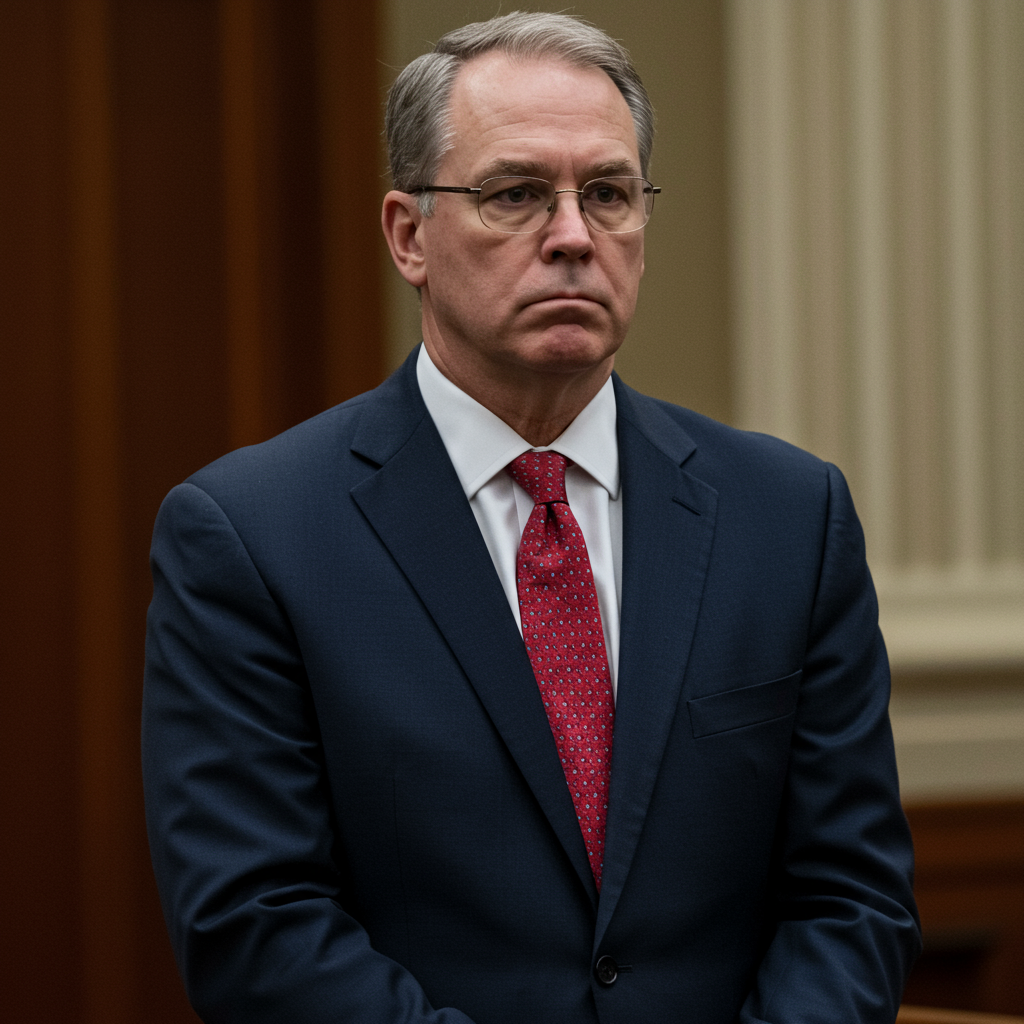The death of convicted sex offender Jeffrey Epstein in a New York jail cell in 2019 ignited a firestorm of speculation and conspiracy theories. At the heart of this enduring controversy sits former U.S. President Donald Trump and his loyal MAGA movement. This persistent saga, fueled by unanswered questions and a desire for transparency, continues to challenge political loyalties and public trust.
This article delves into the intricate web connecting Epstein, Trump, and the fervent demands from Trump’s base regarding the unsealing of sensitive documents. We explore the facts, the political maneuvering, and the legal complexities that define this unique political and legal standoff. Understanding these dynamics is crucial for anyone seeking clarity on one of the most talked-about sagas in recent American political history.
Who Was Jeffrey Epstein, and Why Does He Matter?
Jeffrey Epstein, a Brooklyn native, transformed from a high school math teacher into a highly connected financier. He established consulting and financial management firms, but his true notoriety stemmed from his extensive network. Epstein cultivated relationships with a constellation of powerful figures across global politics, entertainment, and royalty. His social circles notably included prominent individuals like former U.S. President Donald Trump, Democratic President Bill Clinton, Microsoft co-founder Bill Gates, and Britain’s Prince Andrew. Many of these acquaintances reportedly traveled on his private plane or visited his private Caribbean islands, further cementing his aura of influence and secrecy.
Epstein’s social ties to Donald Trump date back to the 1990s and early 2000s. Testimony during the 2021 trial of Epstein associate Ghislaine Maxwell brought these connections into sharper focus. Lawrence Visoski, Epstein’s longtime pilot, testified that Trump flew on Epstein’s private jet multiple times. Despite this testimony, Trump has consistently denied ever being on Epstein’s plane. These past associations form a critical backdrop to the ongoing “Trump Epstein MAGA” controversy.
Epstein’s Criminal History and Unanswered Questions
Epstein’s legal troubles first surfaced significantly in 2008. He pleaded guilty to a Florida state felony prostitution charge. This plea agreement notably avoided federal sex trafficking charges, a deal that is now widely condemned as overly lenient. He served a mere 13 months in jail and was mandated to register as a sex offender.
In July 2019, federal prosecutors renewed their efforts. The Justice Department charged Epstein with sex trafficking minors. These charges alleged the sexual exploitation and abuse of dozens of girls in New York and Florida between 2002 and 2005. Epstein pleaded not guilty to these grave accusations. However, he never faced trial. On August 10, 2019, at age 66, Epstein died by hanging himself in a Manhattan jail cell. An autopsy confirmed suicide as the cause of death. Despite official findings, the circumstances of his death, coupled with his powerful connections, immediately sparked widespread conspiracy theories. Many speculated that powerful figures silenced him to prevent exposure.
The Trump-MAGA Connection: Unraveling the Conspiracy Narrative
The official ruling of suicide did little to quell public skepticism, especially among certain political factions. Epstein’s ties to the wealthy and powerful ignited a potent belief that one or more of his elite connections had him killed to ensure his silence. This is where the Trump Epstein MAGA narrative gains traction.
Former President Donald Trump himself fueled these doubts in several interviews. He openly questioned whether Epstein’s death was indeed a suicide, leaving the possibility of foul play on the table. During the 2024 presidential campaign, Trump explicitly stated his willingness to declassify the “Epstein files” when asked on Fox News, declaring, “Yeah, yeah I would.” This promise resonated deeply with his conservative base. They saw it as a commitment to uncover hidden truths and expose corruption, a core tenet of the MAGA movement’s anti-establishment sentiment.
Promises Made, Promises Broken: A Rare Fracture in Trump’s Base
The anticipation for the release of these documents built steadily among Trump supporters. In February, Attorney General Pam Bondi further heightened expectations when she publicly stated on Fox News that Epstein’s “client list” was “sitting on my desk right now to review.” This statement reinforced the belief that significant, incriminating information was imminent.
However, a dramatic shift occurred. On July 7, the Justice Department released a memo that directly contradicted public expectations. This memo concluded that Epstein did indeed kill himself. Crucially, it stated there was “no incriminating client list” and no evidence Epstein blackmailed prominent people. This reversal sparked immediate outrage among many of Trump’s most loyal followers. The Trump Epstein MAGA narrative, once united in its call for transparency, now faced a rare internal conflict.
Supporters, heavily influenced by conservative talk show hosts and podcasters, accused the federal government of a cover-up. They believed records were being concealed to protect wealthy and influential individuals tied to Epstein. Trump, attempting to manage the fallout, defended Bondi. He also publicly lashed out at his supporters on Truth Social, calling them “weaklings” who had fallen for a hoax. He even accused them of inadvertently aiding Democrats. The backlash from his base, however, did not subside. In response, on July 17, Trump requested Bondi to ask a federal judge to unseal grand jury transcripts related to Epstein’s 2019 indictment, a significant pivot aimed at placating his disillusioned supporters.
The Legal Labyrinth of Grand Jury Transcripts
The path to declassifying or unsealing grand jury transcripts is fraught with legal challenges. Even if Attorney General Bondi formally requests a judge to release these documents, the ultimate decision rests solely with the presiding judge. This process is complex due to strict federal criminal procedure rules.
Grand jury proceedings are generally kept secret. This secrecy serves several critical purposes. It protects witnesses from intimidation or retaliation. It encourages full and candid testimony. It also safeguards the reputation of individuals against whom no indictment is ultimately brought. There are, however, limited exceptions to this secrecy rule. A judge might permit disclosure under specific circumstances, such as for use in a judicial proceeding, upon a showing of “particularized need,” or if the public interest significantly outweighs the need for secrecy.
Should a judge agree to release any transcripts, it is highly probable that much of the material would be heavily redacted. This means portions would be blacked out due to privacy concerns, national security implications, or the protection of ongoing investigations. Therefore, even a release might not satisfy the full scope of public demand for transparency regarding the Trump Epstein MAGA controversy. The legal system prioritizes specific protections over complete public disclosure.
The Road Ahead: What to Expect Next
The ongoing push for transparency surrounding Jeffrey Epstein’s connections and death remains a potent issue. The request to unseal grand jury transcripts signifies a continued effort to address public and political demands for more information. However, the legal system’s inherent secrecy rules mean that a full, unredacted disclosure is unlikely. The judiciary will weigh the public interest against established legal precedents and privacy concerns. This balancing act will shape the extent of any future revelations.
The enduring fascination with the “Epstein files” reflects a broader societal distrust in institutions and a desire for accountability from the powerful. The Trump Epstein MAGA dynamic highlights how conspiracy theories can intertwine with mainstream political discourse, creating divisions even within traditionally unified political bases. As the legal process unfolds, the public will remain vigilant, seeking answers and scrutinizing any disclosures that emerge from this deeply controversial saga.
Frequently Asked Questions
What is the core controversy linking Donald Trump, Jeffrey Epstein, and the MAGA movement?
The core controversy centers on the long-standing social connections between Donald Trump and Jeffrey Epstein, coupled with Epstein’s suspicious death. Many Trump supporters within the MAGA movement believe Epstein was murdered to prevent him from exposing powerful figures. These followers have demanded the “Epstein files” be declassified. The controversy escalated when the Justice Department released findings that contradicted these expectations, leading to a rare fracture within Trump’s political base over transparency and perceived cover-ups.
Why are grand jury transcripts generally kept secret, and what would it take to unseal Epstein’s?
Grand jury transcripts are kept secret primarily to protect witnesses, prevent witness tampering, encourage candid testimony, and shield individuals not ultimately indicted. To unseal Epstein’s grand jury transcripts, a formal request must be made to a federal judge. The judge would then decide based on specific legal exceptions, such as a “particularized need” or significant public interest. Even if unsealed, it is highly likely that large portions would be redacted to protect privacy, ongoing investigations, or national security, making full disclosure improbable.
How did the Justice Department’s findings on Epstein’s death impact Trump’s supporters?
The Justice Department’s memo, released in July, concluded Epstein died by suicide and found no incriminating client list or blackmail evidence. This directly contradicted the expectations of many Trump supporters, who had anticipated revelations proving a cover-up. The findings sparked immediate outrage and accusations of governmental concealment among the MAGA base, causing a significant internal division. Trump responded by defending his Attorney General and criticizing his supporters, leading him to later request the unsealing of grand jury transcripts to try and appease his base.



